About this course
LJMU's Mass Communications MA investigates the significance of media forms, the systems within which they operate and the challenges they face.
- Develop exceptional transferable skills such as presentation, communication and interpersonal skills, skills in creative and analytical writing, organisation and time management
- Study a course designed for students from a wide range of academic or vocational backgrounds, including those working within the media, cultural and communication industries
- Follow a curriculum delivered by academic staff with a proven record in research and teaching
- Join the cultural workforce with an understanding of how changes in policy and the politics of culture effect communication
Media industries and their content are often subject to scrutiny and debates concerning their communicative power and influence, professional practice, ethics and law. This MA will enable you to join the cultural workforce with an understanding of how changes in policy and the politics of culture impact communication. You will examine how communications, institutions and media systems connect with contemporary audience experience and participation.
The MA is delivered by academic staff with a proven record in research and teaching mass communications. It considers forms of communication in a range of contexts to highlight their historical development and explore their continued relevance within a contemporary digital media environment.
The knowledge you will gain on this course will strengthen your ability to create different kinds of communication for specific audiences, enabling you to understand how cultures are influenced and affected by such forms. You will be able to make ethical, relevant decisions with regards to journalism, academia, TV and radio broadcasting, PR and internet broadcasting and writing for the web.
Course modules
Discover the building blocks of your programme
Further guidance on modules
Modules are designated core or optional in accordance with professional body requirements, as applicable, and LJMU’s Academic Framework Regulations. Whilst you are required to study core modules, optional modules provide you with an element of choice. Their availability may vary and will be subject to meeting minimum student numbers.
Where changes to modules are necessary these will be communicated as appropriate.
Core modules
Theories, Concepts and Debates in Mass Communications
30 credits
30 credits
This module aims to develop a comprehensive understanding of key theoretical frameworks relevant to Mass Communications. It enables you to establish a critical awareness of the field. It introduces a variety of ways in which the relationship between the mass media and society is theorised by academics and the issues currently debated in the field.The module explores media industries and content on a global scale to ensure students have a wide understanding of the contemporary field of media and communications studies.
Digital Cultures
30 credits
30 credits
This module aims to:
- contextualise the evolution of digital media and its perceived social purpose
- critically assess how popular cultural practices are informed by changes in the commercial use of digital media
- critically assess how digital media forms are used within professional contexts
- evaluate current research on digital cultures
Mass Communications Dissertation
60 credits
60 credits
This module is supported by Mass Communication Research Methods. The dissertation is designed to allow you to demonstrate your competence in selecting a relevant subject for investigation and exercising appropriate judgement in the planning and design of the project. It enables you to:
- produce a dissertation that demonstrates original and independent research on Mass Communications
- exercise initiative and personal responsibility in the development of the research project
- engage confidently in academic communication
Perspectives on Mass Communication Research Methods
30 credits
30 credits
This module will introduce you to specific research methods commonly used when researching mass communications. It aims to enable you to critically evaluate current research and advanced scholarship. The module is also designed to enable you to consider what constitutes a viable research project at MA level and to devise a suitable dissertation proposal.
Communications Practice
30 credits
30 credits
How do organisations communicate in the digitally-focused 21st century environment? The module combines theoretical and hands-on, career-orientated exploration of this central question. Building on the evaluative skills that they developed in Digital Cultures, students examine theories of organisational communication and critically analyse current debates about how organisations can - and should - communicate in the digital age with their various audiences or publics. Utilizing their understanding of concepts such as the public sphere from semester one, they also investigate these issues in the context of the field of mass communications by considering the digital environment and its potential to foster participatory culture, drawing on selected case studies from particular media, cultural and communications industries. The module offers students the opportunity to apply their acquired skills and knowledge to a real-world organisational communications challenge, with input from actual employers. Organisations will be varied and will not simply include media businesses but also those from the wider cultural, activist and charitable sector. Assessments require students to think creatively and critically, drawing on theoretical knowledge to evaluate existing practice and apply this in the production of professional standard communication materials.
Professional accreditation/links
The Liverpool Screen School is a BAFTA albert Education Partner and proud to be working with albert to arm students with the sustainability knowledge they’ll need when joining the screen industries. BAFTA albert is the leading screen industry organisation for environmental sustainability.

Your Learning Experience
An insight into teaching on your course
Teaching hours
Students attend university for teaching on Mondays, Tuesdays and Fridays, with the research methods module taught over the full academic year.
Teaching methods
The course offers a range of approaches to learning, including field trips, with peer and tutor feedback greatly encouraged. Workshop activities and tutor support facilitate formative feedback to enable you to work on your weaknesses and build on your strengths.
How learning is monitored on your programme
To cater for the wide-ranging content of our courses and the varied learning preferences of our students, we offer a range of assessment methods on each programme.
You will engage in a range of assessments, from standard essays (both tutor directed and student directed), to presentations, critical reviews of websites, various blog entries and a dissertation.
Where you will study
What you can expect from your School
Based within the John Foster Building in the Mount Pleasant Campus, the School of Humanities and Social Science has many outstanding facilities, including well-equipped IT Suites, a light-filled Student Common Room and dedicated postgraduate study areas. At the back of the John Foster Building is the Aldham Robarts Library, which gives access to an exceptional range of materials to support the study of humanities and social science.
Course tutors

Dr Nedim Hassan
- Programme leader
I enjoy teaching and engaging with a range of different students. Helping students to develop their academic skills, critical thinking and confidence in their independent research is enormously satisfying. Working with internationally renowned cultural partners such as Tate Liverpool and seeing students benefit from such partnerships has also been highly rewarding.
I enjoy teaching and engaging with a range of different students. Helping students to develop their academic skills, critical thinking and confidence in their independent research is enormously satisfying. Working with internationally renowned cultural partners such as Tate Liverpool and seeing students benefit from such partnerships has also been highly rewarding.
Ned's research interests include the roles of music in everyday domestic life, 1980s rock and metal music culture, as well as contemporary metal music cultures. He has conducted extensive ethnographic research that has examined domestic musical practice, community music-making and metal music culture. Previous published work focuses upon domestic and public musical performing as a resource for social interaction and the articulation of self-identity, the politics of leisure for adults with learning disabilities and the representation of hard rock and metal music of the 1980s. He is currently engaged in an ethnographic project that examines rock and metal music scenes in Merseyside, UK.
Career paths
Further your career prospects
LJMU has an excellent employability record with 96% (HESA 2018) of our postgraduates in work or further study six months after graduation. Our applied learning techniques and strong industry connections ensure our students are fully prepared for the workplace on graduation and understand how to apply their knowledge in a real world context.
Engagement with this vibrant and innovative programme of study will provide you with a portfolio of skills that will be valuable for working in a range of media industries. The postgraduate research training that is integral to this course will also enable you to pursue further study at doctoral level.
Former students who have studied Mass Communications at LJMU have gone on to work in advertising, marketing, public relations, arts administration, publishing, industry, retail, leisure, charitable organisation management, educational administration, accountancy, the social services, teaching and the Civil Service.
You may also pursue a career in broadcasting (radio or television), digital media and public relations.
Tuition fees and funding
- Home full-time per year:
- £8,390
The University reserves the right to increase tuition fees in accordance with any changes to the maximum allowable fees set by the UK Parliament. In the event of such a change, any fee increase will be subject to a maximum cap of 10% of the total course cost as originally stated at the time of your offer.
Fees
The fees quoted at the top of this page cover registration, tuition, supervision, assessment and examinations as well as:
- library membership with access to printed, multimedia and digital resources
- access to programme-appropriate software
- library and student IT support
- free on-campus wifi via eduroam
Additional costs
Although not all of the following are compulsory/relevant, you should keep in mind the costs of:
- accommodation and living expenditure
- books (should you wish to have your own copies)
- printing, photocopying and stationery
- PC/laptop (should you prefer to purchase your own for independent study and online learning activities)
- mobile phone/tablet (to access online services)
- field trips (travel and activity costs)
- placements (travel expenses and living costs)
- student visas (international students only)
- study abroad opportunities (travel costs, accommodation, visas and immunisations)
- academic conferences (travel costs)
- professional-body membership
- graduation (gown hire etc)
Funding
There are many ways to fund postgraduate study for home and international students. From loans to International Scholarships and subject-specific funding, you’ll find all of the information you need on our specialist postgraduate funding pages.
Please be aware that the UK’s departure from the EU may affect your tuition fees. Learn more about your fee status and which tuition fees are relevant to you.
- International full-time per year:
- £17,750
International Scholarships and payment plans
Liverpool John Moores University is committed to supporting international students by providing a range of scholarships and flexible payment plans to help students manage their tuition fees.
Scholarships
LJMU provides a variety of scholarships to support international students. Scholarships are available to self-funded students who have accepted their offer and met all the conditions outlined in their offer letter. Students must also demonstrate that they can cover living costs, travel, and other expenses associated to studying at the university. Postgraduate scholarships include tuition fee reductions and are often offered in partnership with external funding organisations.
All self-funded international students are eligible for an automatic scholarship worth up to £4,000. For more details and to view our full list of scholarships, visit the international scholarship webpages.
Deposit
All students must pay a £5,000 deposit before they can receive their CAS letter.
For more information view our deposit page.
Tuition Fee Payment Plan
After paying their £5,000 deposit, students have the option to pay their fees in full or in three equal instalments minus any internal scholarships and discounts. There are two payment options available for international students. You can either pay your tuition fees in full before enrolment or opt for a payment plan. With the payment plan, you can pay your fees in three instalments after making your £5,000 deposit. The first instalment is due before enrolment.
All payments should be made through Flywire. Full details can be found in the How to Pay Guide.
Early Bird Tuition Fee discount
We are excited to introduce a £500 Early Payment Discount to all self-funded international students. Eligible self-funded students who pay their fees by the required deadlines will get a discount which will be automatically deducted from the 1st year of tuition fees.
To see the required deadlines please visit the webpage
Entry requirements
You will need:
Qualification requirements
Undergraduate degree
- a minimum second class honours degree in a Humanities or Social Science related discipline
Alternative qualifications considered
- industry experience in a relevant sector such as PR, marketing and journalism.
Additional requirements
-
Relevant work experience
- If you do not have a degree, a minimum of five years work experience in a relevant field such as public relations, journalism, information officers, librarians, marketers, social media managers, social scientists and civil servants will be considered
Further information
- Extra Requirements
-
RPL
- RPL is accepted on this programme
International requirements
IELTS
- IELTS English language requirement: 6.0-6.5 (minimum 5.5 in each component)
How to apply
Securing your place at LJMU
To apply for this programme, you are required to complete an LJMU online application form. You will need to provide details of previous qualifications and a personal statement outlining why you wish to study this programme.
Applications are considered by the programme leader and at least two course tutors. They are assessed on your application form and references. You will need to:
- demonstrate sufficient knowledge to embark on the programme
- display the potential to develop high level research skills
- demonstrate the ability and commitment to work at postgraduate level
Your university life
From accommodation and academic support to clubs and societies. Find out what LJMU has to offer.
Related Links
Talk to our students
Connect with a current LJMU student for advice and guidance on university life, courses and more.
See what our students are saying
At LJMU we want you to know you’re making the right choice by studying with us. You can see what our students are saying about their experience with us through their reviews on the following websites:
Related Links
News and views
Browse through the latest news and stories from the university

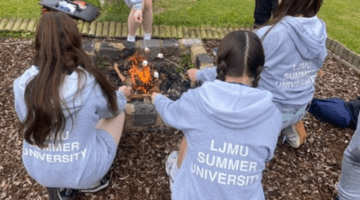

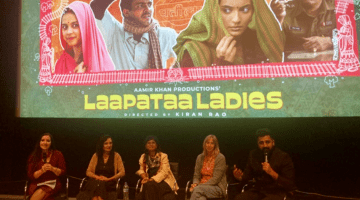
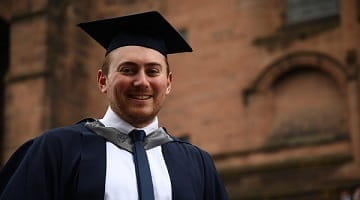
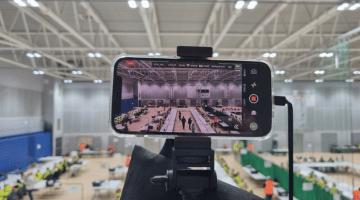


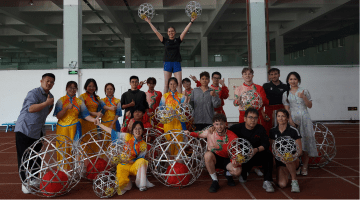
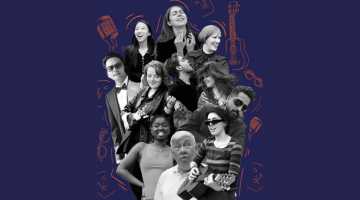
The University reserves the right to withdraw or make alterations to a course and facilities if necessary; this may be because such changes are deemed to be beneficial to students, are minor in nature and unlikely to impact negatively upon students or become necessary due to circumstances beyond the control of the University. Where this does happen, the University operates a policy of consultation, advice and support to all enrolled students affected by the proposed change to their course or module.

















